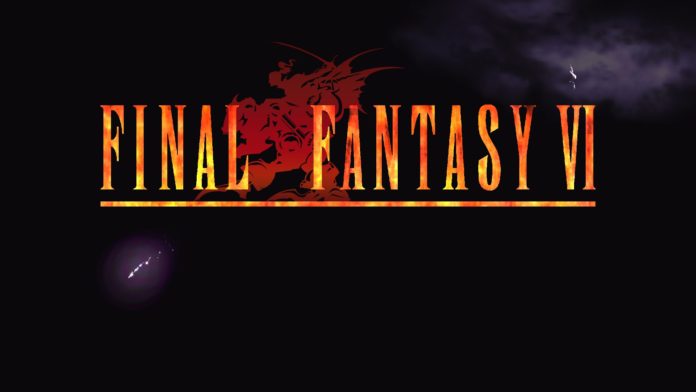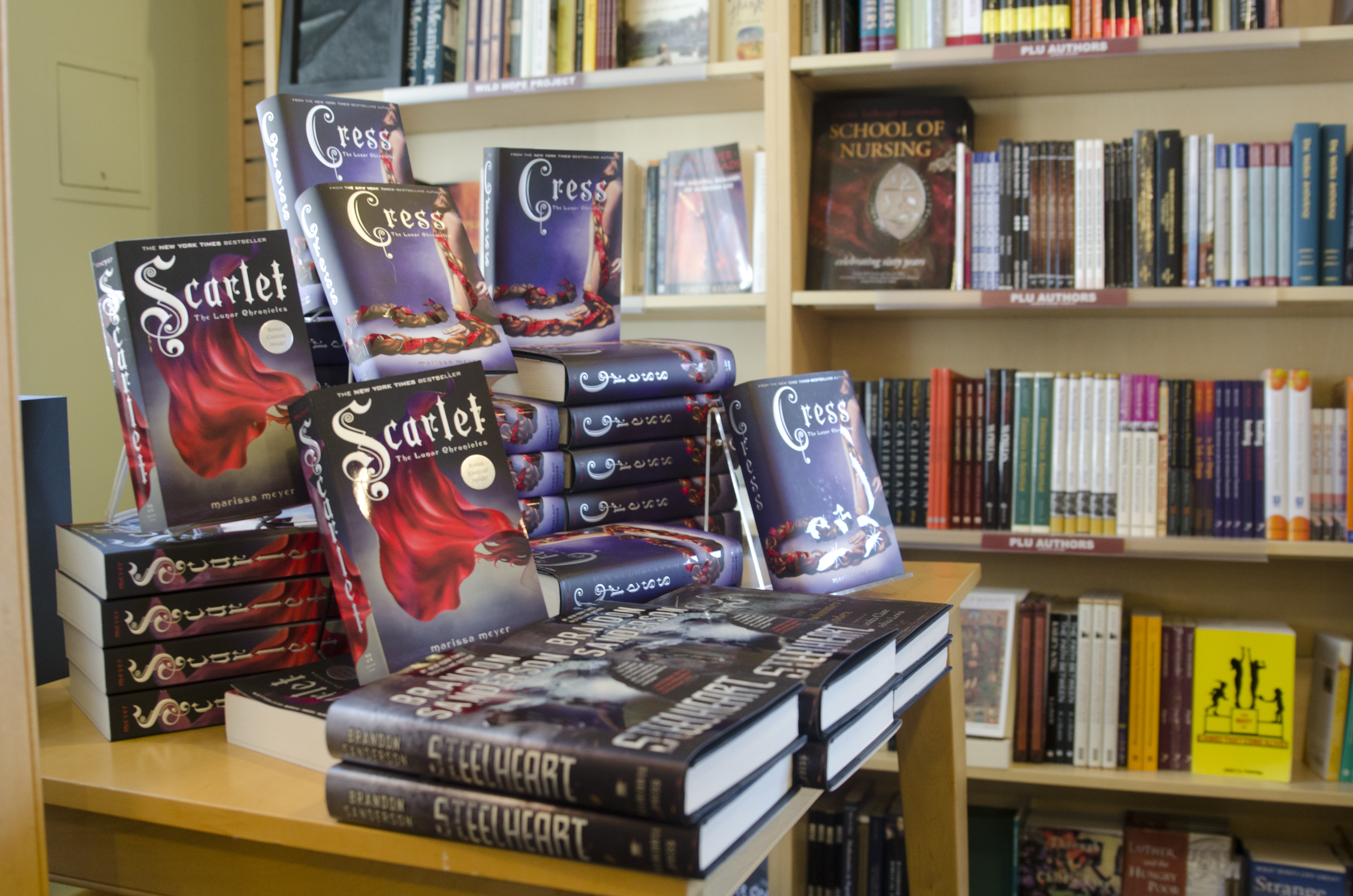Nolan James
Opinion/Arts & Culture Editor
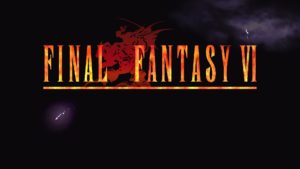
Final Fantasy VI is a masterpiece, and the new Pixel Remaster makes it more available than ever before. There is a new definitive way to play one of the greatest RPGs of all time.
While Final Fantasy as a franchise is most widely known for its seventh, tenth and fourteenth entries, all of which are great games, it is the sixth entry that many critics correctly regard as the series’ true masterpiece. Final Fantasy VI was the final entry released on the Super Nintendo in 1994, before the series moved to the PlayStation. It feels like a collection of everything that made the previous Nintendo entries great while pointing towards the future of the franchise with its more involved story.
While the presentation is less bombastic and the storytelling is less fleshed-out than the later entries due to hardware limitations, Final Fantasy VI is incredibly rich thematically, and is more literary than anything else in the series. Each of the fourteen playable characters, regardless of how fleshed out they are, contribute to an overarching narrative about how people manage trauma.
Final Fantasy VI deals with a lot of dark topics for a Super Nintendo game. Genocide, suicide, and pregnancy are all major events within the game’s story, and it deals with heavy themes of shared trauma and having to move on from tragedy. In a post-pandemic world, the former theme rings especially poignant.
For a long time there was no clear answer as to which official release of the game was the best way to experience it. Now there is.
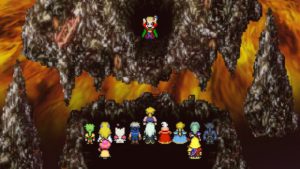
The Pixel Remasters of the first six games in the series have generally met with a very positive reception. There have been some criticisms, though. The fifth entry was noticeably buggy on its initial release, though that was quickly patched, and the 3D remake of IV remains the definitive way to play that game due to the difficulty and general presentation, rendering its pixel remaster relatively worthless.
The same cannot be said for this remaster of VI. While most of the earlier entries have other ports that compete with their remasters, all of VI’s ports have been lackluster. Every version but the original on the SNES is lacking in presentation, and any bonus content added was only for the worse.
This left the SNES version as arguably the best way to play the game, and that version is a buggy mess with a largely lackluster translation. It was too easy to break the game wide-open due to its numerous exploitable glitches, and the censorship consistently hindered the dialogue.
The new Pixel Remaster fixes the major game breaking bugs and cleans up the translation. While some parts of the new translation are a little too direct, lacking some charm of the original, the vast majority of the time it is a clear improvement.
Importantly, for the first time ever the presentation has been an improvement over the original, rather than a degrade. While the brightened palette may not be to everyone’s taste, overall the new version of the game looks gorgeous. Battle screens are more detailed, character models more closely match their official artwork, and the music is beautifully reorchestrated.
The music is the real reason to play this new version of the game. Final Fantasy VI has one of the most legendary soundtracks in any video game, held back only by the limits of the SNES sound chip. Those limits no longer exist, and the new soundtrack is gorgeous.
There are two exceptions to that, though. The song Techno de Chocobo sounds like garbage now, which is a shame because the original version is one of the best Chocobo themes in the series. It was always silly and over-the-top, but the new version is too extreme. However, there is a good chance a player will go through the entire game without ever hearing it, so it is not that big of a deal.
The other song that potentially was ruined is the game’s most famous one, however, which is a much bigger issue. Aria di Mezzo Carattere is the song which plays over the game’s most legendary sequence in which general Celes Chere disguises herself as an opera singer to get the attention of airship-owner Setzer Gabianni.
The sequence features Celes singing about her character in the opera’s lost love, paralleling her own feelings towards party member Locke, who she has a tumultuous relationship with. The sequence is beautiful and emotional, and while obviously unimpressive by today’s standards, the 16-bit vocals were revolutionary.
Since Celes is not a singer in-universe, they elected to hire someone who is not a good singer to perform the song. It does not sound good. The thing is, this is a fantasy game. During that sequence the characters fight a giant talking purple octopus on the stage. Realism was not the goal. Considering how many beautiful operatic renditions of the song have been performed over the years, it is disappointing to have this new version be arguably the worst.
Again, though, everything else is great. The soundtrack is amazing. It is not perfect, but it does have better music overall.
The remaster does stumble in a few other areas, though. While there are less major game breaking glitches, there are still a lot of noticeable bugs throughout. Character sprites sometimes do not load properly, running away from battle can still result in the character getting damaged, and rarely the game will freeze during battle.
These issues will probably be patched out shortly, but they really should have been fixed before release. Other than mistakes, there are some minor annoyances, too. The game takes a long time to load from a save file, which is particularly frustrating when trying to farm rare items. The opening sequence no longer has credits, which makes it feel less cinematic than the original. Auto-battle does not work properly with certain character abilities, like Gau’s Rage.
Problems like these are unfortunate, but the remaster makes up for it with its numerous quality-of-life upgrades. Auto-battle speeds things up greatly. The map is a major improvement and far more useful than the original. Certain character’s abilities have been balanced, especially Cyan Garamonde’s, which was practically worthless in the original. Characters can equip items from the purchase screen in stores, which speeds up that process, something which was frustratingly slow in the original. They can also change equipment whether they’re in the current party or not. Enemies use their special abilities more, making the game, which is famously too easy, a bit more difficult. Characters can sprint without needing to equip items.
These are only some of the many small improvements that all go a long way to make the game a lot more fun to play than the original. There is really no reason to go back to any older official release of Final Fantasy VI now.
If the remaster stumbles in any other area, it is where it does not improve flaws of the original. Final Fantasy VI may be one of the greatest games ever released, but it is far from flawless. The game, even with the added difficulty, is still too easy. Certain playable characters are lacking in development and depth, and nothing was added to make them more interesting. Magic is still overpowered and renders all other abilities useless halfway through the game.
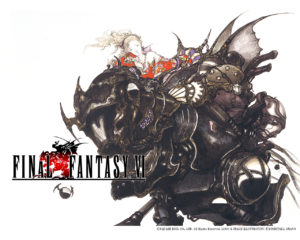
Graphically, people have been wanting an HD-2D remake of this game similar to Octopath Traveler, which was in turn greatly inspired by the original design of Final Fantasy VI. Square Enix chose to remake the opera scene in HD-2D, and it is beautiful. So why not remake the whole game like that? It feels like a lot more could be done to make a masterpiece even better.
Up against everything great the game does, these issues are relatively negligible, but it is a shame to see that more was not done to improve the game. Then again, changing the original game too much runs the risk of alienating veteran players, so perhaps the right decision was made.
Final Fantasy VI is an amazing game, even by today’s standards. The nearly-30 year-old story still holds up incredibly well, and the game is pretty fast and easy to play through. Now there is a great way to officially play the games on PC and mobile, and hopefully these remasters come to consoles soon. There needs to be some patching, and they still are not perfect, but now is a better time than any other to play the greatest game in the greatest RPG franchise ever.

















